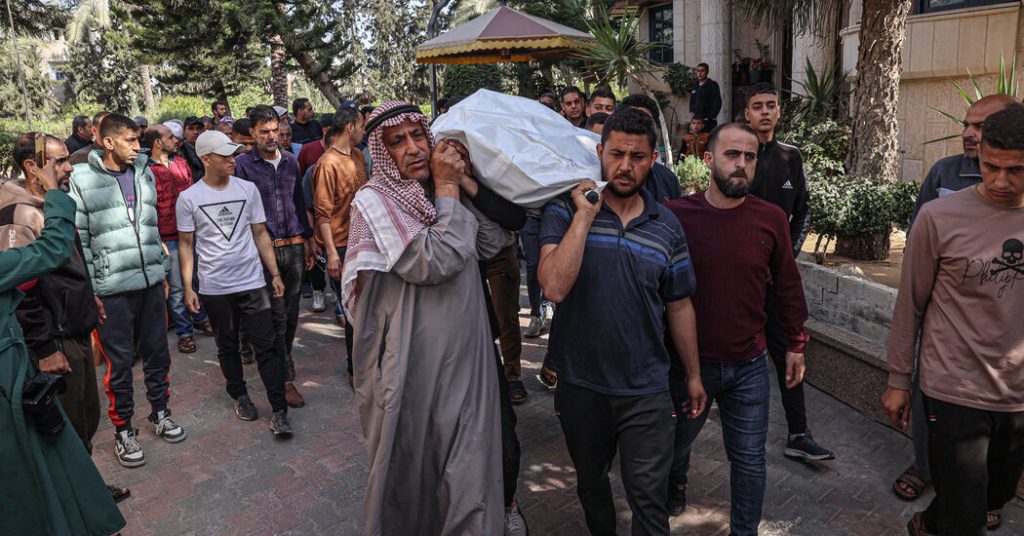Saifeddin Abutaha, a 25-year-old aid worker for World Central Kitchen, was tragically killed in an Israeli missile strike on a humanitarian convoy last week. He was devoted to his parents and frequently communicated with them while delivering aid across Gaza, which is facing a famine after months of conflict. Since his death, his mother has been unable to accept that he is gone, refusing to eat and holding out hope that he will return. Saif’s death, along with six other World Central Kitchen employees, has sparked international outrage, particularly from the countries they hailed from.
The majority of aid workers who have been killed in Gaza since the conflict began have been Palestinian, underscoring the risks faced by local humanitarian workers. These workers play a crucial role in providing on-the-ground expertise and connections for foreign aid groups operating in the region. Saifeddin worked for World Central Kitchen as a driver and translator, assisting staff in navigating bureaucratic challenges and delivering much-needed aid. Despite the organization’s high level of coordination with Israeli authorities, Saif and his colleagues were fatally targeted in the attack.
The Israeli military has acknowledged that the killings were a grave mistake, resulting from failures and broken protocols that led to the tragic loss of life. International chef and World Central Kitchen founder José Andrés has called for an independent investigation into the incident, questioning the objectivity of the internal military investigation. The ongoing conflict in Gaza, which began as a military response to an attack by Hamas, has resulted in significant casualties and destruction.
Before the war, Saif had a promising future, having attended university in the United Arab Emirates and worked abroad. However, he returned home to help run the family flour mill, which was ultimately destroyed by Israeli airstrikes. World Central Kitchen established its Gaza headquarters at the family warehouse, leading to a close relationship between the aid workers and the Abutaha family. Saif’s role as a translator and driver for the organization allowed him to make a meaningful impact during a time of crisis.
Saif’s family remembers him as dedicated to helping those in need, even in the face of danger. On the day of his death, he had been out delivering aid in preparation for Ramadan, a time of fasting and charity. His final messages to his family reflected his commitment to his work and his concern for his loved ones. Despite the devastating loss, Saif’s family finds solace in the fact that he passed away while serving others and making a difference during a time of hardship. They mourn his absence during the holy month, cherishing his memory and the impact he had on those around him.


